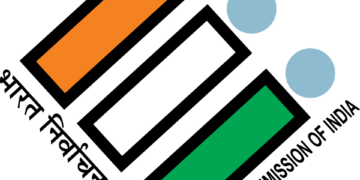WHO, the criminally incompetent organization, has restarted the HCQ trial after the study which was the basis of stopping the trials was “questioned” by scientists across the world. A study published in The Lancet, one of the world’s most respected medical journals, whose credibility is now under question after publishing the sub-standard study had claimed that consumption of HCQ actually increased the death rate among COVID-19 patients.
Later, it was found that the study authored by cardiologist Mandeep Mehra, Desai, and Zurich cardiologist Frank Ruschitzka has serious data discrepancies. And now WHO has decided to resume the HCQ solidarity trial after it halted the same on May 22, day after study was published in The Lancet.
Based on available data, the #COVID19 Solidarity Trial Data Safety & Monitoring Committee recommended there are no reasons to modify the trial protocol. The Executive Group endorsed the continuation of all arms of the Trial, including the use of hydroxychloroquine. https://t.co/r88DVEvZ3j pic.twitter.com/cYITShxcE7
— Tedros Adhanom Ghebreyesus (@DrTedros) June 3, 2020
“On the basis of the available mortality data, the members of the committee recommended that there are no reasons to modify the trial protocol. The Executive Group will communicate with the principal investigators in the trial about resuming the hydroxychloroquine arm of the trial,” tweeted WHO’s infamous director-general Tedros Adhanom Ghebreyesus.
An investigation by British newspaper, The Guardian, revealed that the tiny US firm, Surgisphere, whose “handful of employees appear to include a science fiction writer and an adult-content model,” analyzed the data quoted in the study which claimed that the death rate increased among patients who were given HCQ. It is shocking that The Lancet published this study.
After the scientific community around the world questioned the study, and many newspapers like The New York Times and The Guardian, which have not been very supportive of using HCQ, carried out investigations questioning the data used in the study, The Lancet said it is reviewing the data and methods used in the study.
“We are issuing an Expression of Concern to alert readers to the fact that serious scientific questions have been brought to our attention. We will update this notice as soon as we have further information,” said a statement issued by The Lancet.
But, the important question is that The Lancet claims to be a peer-reviewed journal, and such serious discrepancies found in its study, it means that either the study was not peer-reviewed or the organization published it in exchange for some benefits.
The US big pharmaceutical companies, along with financial media houses, are already running a campaign against HCQ, as the anti-malarial drug is cheap and it is primarily produced in India. In order to benefit from the Covid-19 pandemic, the big pharmaceutical companies are running a campaign to undermine the capabilities of generic drug HCQ as a prophylactic (preventive) drugs against the disease.
Now, it looks like, not just the financial media houses like Bloomberg, but the premier scientific journalists like The Lancet are also complicit in the campaign against the cheap and accessible drug HCQ.
WHO was already exposed and alleged to complicit in China’s covering up of the virus in initial days; the latest stupidity of halt of trial and resumption will only dampen its credibility and raise questions over its competence.
But, the whole HCQ saga has also exposed the premier scientific journals like The Lancet, which used to be considered the gold standard in scientific publishing so far.
The Indian scientific bodies like ICMR and CSIR stood firmly on HCQ and did not stop using it as a preventive drug even after the study was published in The Lancet. ICMR carried its own study which showed that the health workers who are being given the right doses of HCQ have 80 percent fewer chances of getting infected from Coronavirus disease.
“The main conclusion that can be drawn after analyzing the data is that HCQ has beneficial effects in infection risk reduction from fourth dose onwards. The first loading dose of 800mg and then every week a dose of 400 mg for 4, 6 or more weeks as per your physician’s advice will help cut the risk of infection by 80% in healthcare workers who are not already sick,” says Dr Samiran Panda, Director, ICMR-National AIDS Research Institute, the study co-author.
CSIR Director-General Shekhar Mande slammed WHO for taking decisions in haste instead carrying instead of analyzing the data of the study, on whose conclusion it decided to suspend the trails. “I firmly believe that WHO decision was taken in haste it was a kind of knee jerk reaction they should have actually analyse the data on their own before temporarily suspend the trials that is my personal opinion,” said Mande.
The whole HCQ episode has not just exposed WHO, The Lancet, and American big pharmaceutical companies, but also is evidence of the superiority of scientific community in India.
























